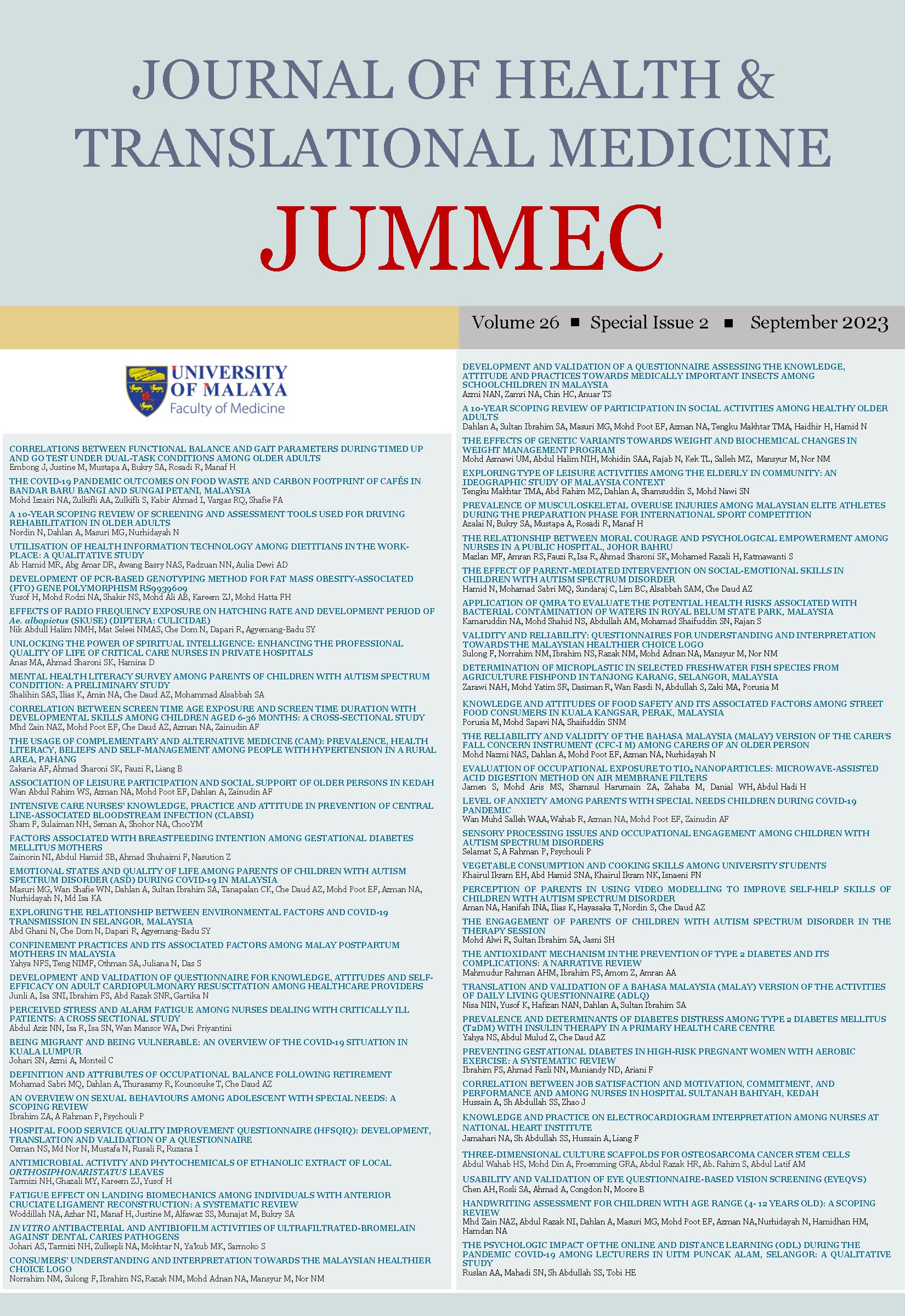KNOWLEDGE AND ATTITUDES OF FOOD SAFETY AND ITS ASSOCIATED FACTORS AMONG STREET FOOD CONSUMERS IN KUALA KANGSAR, PERAK, MALAYSIA
Received 2023-07-07; Accepted 2023-09-14; Published 2023-09-15
DOI:
https://doi.org/10.22452/jummec.sp2023no2.37Abstract
Street food plays a significant role in the economy, where it supports the livelihoods of millions of people living in urban and rural areas while also contributing to tourism industries. As such, the hygiene and safety of street food should not be underestimated, as poor adherence to food hygiene and safety can contribute to foodborne diseases. A good understanding of food safety among consumers can reduce the incidence of foodborne outbreaks. However, comprehensive literature on the safety of street food is still inadequate. Therefore, a cross-sectional online survey was conducted among street food consumers in Kuala Kangsar, Perak Malaysia, to determine the level of food safety knowledge and attitudes, as well as the associated factors. For data analysis, descriptive statistics, Pearson correlation and Chi-square tests were conducted using SPSS version 26. Findings revealed that street food consumers in Kuala Kangsar have a moderate knowledge (59 ± 17) on, and positive attitudes (78 ± 14) towards food safety. Analysis revealed a significant association between participants’ food safety knowledge and attitudes scores, and gender with participants’ knowledge (p < 0.05). Even though the level of food safety knowledge and attitudes among street food consumers were satisfactory, the study suggests that several important factors, including cross-contamination, food pathogens, proper food storage, and time/temperature control, should be stressed when providing food safety education to the general public since these are the topics that the participants could not correctly answer. In addition, to promote hygiene and safety with regard to street food in Malaysia, related agencies such as the Ministry of Health and regulatory authorities must design effective initiatives and implement adequate control.
Downloads
Downloads
Published
Issue
Section
License
All authors agree that the article, if editorially accepted for publication, shall be licensed under the Creative Commons Attribution License 4.0 to allow others to freely access, copy and use research provided the author is correctly attributed, unless otherwise stated. All articles are available online without charge or other barriers to access. However, anyone wishing to reproduce large quantities of an article (250+) should inform the publisher. Any opinion expressed in the articles are those of the authors and do not reflect that of the University of Malaya, 50603 Kuala Lumpur, Malaysia.


